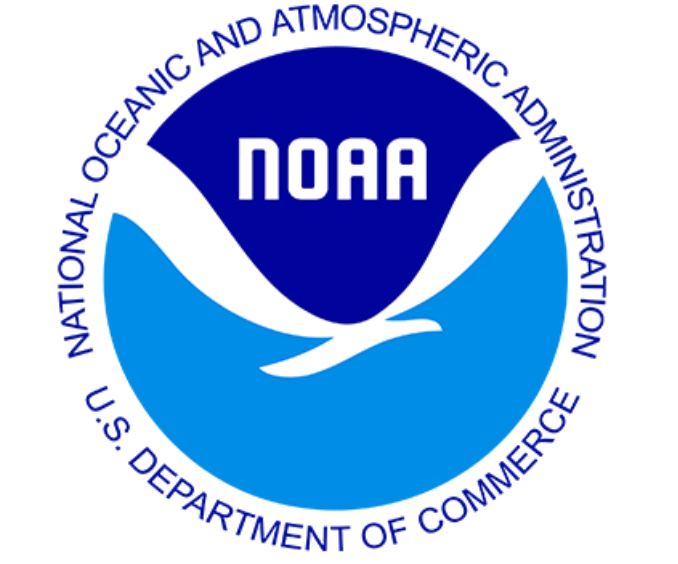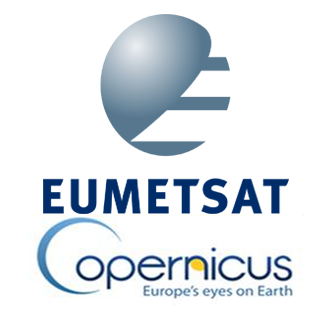Category: Uncategorized
Call for Papers: Special Issue “Bio-Optical Oceanic Remote Sensing”
Contributions are solicited for the upcoming special issue of Remote Sensing, entitled “Bio-Optical Oceanic Remote Sensing” will focus on the development and validation of new bio-optical remote sensing algorithms for oceanic and coastal waters. The issue will be co-edited by Bradley Penta (NRL) and Victor S. Kuwahara (Soka University). Authors are encouraged to submit articles concerning, but not limited to, the following topics:
-
- In situ validation of ocean color products
- Vicarious validation of ocean color sensors Hyperspectral remote sensing algorithm development
- Ocean color products related to:
- Harmful algal bloom (HAB) detection
- Phytoplankton functional types (PFT)
- Higher trophic levels
- Optical water mass classification
- Biogeochemical cycles
- New and future applications of remote sensing ocean color sensors
More information is available at: mdpi.com/si/55750 .
Submissions will be accepted through 31 July 2021. Each submission will be published based on its own peer review process.
WWQA Webinars on August 26th and 27th
The World Water Quality Alliance invites you to join two of its sessions at the 2020 WWWeek At Home.
“Water Quality and Climate Change – The Overlooked Variable” Wednesday 26th of August 2020 ~ 10.00 – 10.45 (CEST Time Zone). To join us for this session please CLICK HERE!
“World Water Quality Alliance – Social Engagement for Climate Action” Thursday 27th of August 2020 ~ 11.00 – 11.45 (CEST Time Zone).
To join us for this session please CLICK HERE!
For more details on the sessions please visit our virtual stands on the SIWI WWWeek At Home webpage:
https://www.worldwaterweek.org/event/9203-water-quality-and-climate-change—the-overlooked-variable
Free NOAA CoastWatch On Demand Tutorial at Oceans 2020 Virtual Meeting!
Oceanography from Space for Everyone: Demystifying Satellite Data for Users
On Demand Content Available October 5-30, 2020
Live Q&A Tuesday, October 13
NOTE: You must be registered for the Oceans 2020 Virtual Conference to access this free on-demand tutorial.
Presenters: Dr. Veronica Lance, Michael Soracco, & Dr. Melanie Abecassis
National Oceanic and Atmospheric Administration (USA)
Background:
In the value chain of progressing from data to information to applications and knowledge, observations of surface ocean and coastal water properties by satellite remote sensing are significant components for many operational applications, modeling and data assimilation activities, and scientific investigations that assess, monitor and predict the physical, biological, and biogeochemical states of the marine environment. For the open ocean, many key environmental parameters are determined on a routine and sustained basis from well-validated algorithms including sea surface temperature, sea surface height, ocean color, sea ice, ocean winds, and roughness of the ocean surface (e.g., oil spills), providing frequent and synoptic coverage. Retrievals in coastal, near-shore and inland waters continue to be an area of active research and development, but many products are fit for purpose and ready for use in observation-based marine applications. Gaining access to and utilizing these satellite data and data products can be daunting to the non-specialist, however. This tutorial will i) review current status and availability of mature, operational satellite observations for the ocean and coasts; ii) provide information on emerging satellite-derived products; iii) illustrate use of these data through representative case studies; and iv) highlight methods for the discovery and acquisition of satellite data, including a demonstration of the NOAA CoastWatch/OceanWatch/PolarWatch data portal and a group discussion on solutions to the barriers (real or perceived) that constrain more routine utilization of satellite observations. Time will be allocated for participants to explore data portals and interact with the tutorial team to request guidance, suggest downstream data products and/or give feedback, etc.
This tutorial is primarily aimed toward decision-makers, managers, engineers and researchers (public, private, commercial) who would like to consider incorporating ocean and coastal satellite observations into their applications and services but who need to learn the basics or get beyond obstacles they may have encountered.
Core Learning Objectives:
- understand basic terminology, available parameters, and trade-offs of data types in the ocean/earth-observing satellite world
- get hands-on practice and receive practical guidance for accessing satellite data products for specific projects
- provide feedback and suggestions for the development of downstream products to facilitate participants specific applications and services
- meet key contacts at NOAA CoastWatch/OceanWatch/PolarWatch with whom participants can follow up.
Dr. Veronica Lance is Program Scientist for the NOAA CoastWatch/OceanWatch/PolarWatch Program and is trained as a biological oceanographer with a PhD from Duke University. Veronica’s research interests include the use of ocean satellite data to study phytoplankton and primary productivity. She serves as the conduit between the upstream satellite specialists and downstream users.
Michael Soracco is the HelpDesk Coordinator for NOAA CoastWatch/OceanWatch/PolarWatch. He specializes in user access by developing and maintaining data products, the data portal (and website) and runs the helpdesk. Michael studied aerospace engineering for his B.AE at Georgia Institute of Technology and earned his Master’s degree in Business at Central Michigan University. He served as a commissioned officer in the NOAA Corps servicing equatorial moored buoys, conducting coastal hydrographic surveys, and as an ocean remote sensing operations officer. He has developed and taught the NOAA GIS course and is a fundamental source of the CoastWatch program’s “corporate memory.“
Dr. Melanie Abecassis is the Operations Manager for OceanWatch. Dr. Abecassis is a Marine Ecologist with a PhD from Universite Paul Sabatier (Toulouse III). Melanie’s research interests include animal habitat modeling and using satellite data to reduce endangered species bycatch.
EUMETSAT Training Course
EUMETSAT Training Course – Using the Copernicus Marine Data Stream for Ocean Applications: 28 September – 23 October 2020
The purpose of this EUMETSAT Copernicus Marine Data Stream (CMDS) training workshop is to share knowledge, skills, resources and code so attendees are able to independently access and process Sentinel-3 data for their marine work-flows and applications.
Target audience: Training is aimed at, but not restricted to, early career scientists: Masters / PhD students, Post-Docs, and/or experienced scientists from any relevant sector (industry, government, environment, research) who have clear motivations for wanting to work with satellite-based ocean observation data. It would be beneficial for participants to have introductory experience using SNAP and/or a scripting language such as Python (or similar), but this is not a prerequisite. Please note that this course is aimed at a European audience and as such funding for this course is primarily available for participants from Copernicus programme member states.
Dates and format: Training will take place entirely online through two phases. The first self-taught phase will involve self-paced (asynchronous) flexible learning over 3-weeks through webinars, forums (particularly for software installations), documentation and assignments. The second classroom phase will be hosted over Zoom, and make use of more structured teaching through live demos, interactive tutorials, group work, and 1:1 meetings. This 5-day classroom phase will require attendance from 10h00 – 16h00 CET from the Monday through to the Friday.
Self-taught phase: 28th September – 16th October 2020
Classroom phase: 19th October – 23rd October 2020
Application Deadline: Midday EST 18th September 2020. For more information and to apply please see: https://training.
![]()





